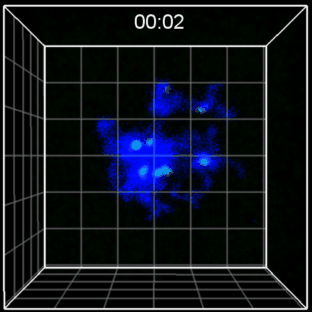How do chromosomes divide?
In a body, every single cell has the same number of chromosomes. This is because when a cell divides, the replicated chromatids are equally segregated into daughter cells. But, the first meiotic division is a clear exception. This division segregates maternal and paternal chromosomes for production of eggs and sperms, which are the origin of a new life. What is the story behind this division?
Read More
News
9 December, 2025
MBSJ2025
Tomoya Kitajima, So Shimamoto and MeiAkiko Mukose attended the 48th Annual Meeting of the Molecular Biology Society of Japan (MBSJ 2025) held in Yokohama from 3 to 5 December, 2025 and gave research presentations.
1 December, 2025
Celebration Party
We held a celebration party and a table tennis tournament with our lab members and their families to welcome Visiting Scientist Dr. Guo and Student Trainee Mr. Wei, celebrate the publication of our papers, and congratulate Team Director Kitajima on receiving the Osaka Science Prize.
11 November, 2025
A researcher from CITIC–Xiangyain China visited our lab
Jing Guo from CITIC-Xiangya Reproductive and Genetic Specialty Hospital in China visited our lab. She plans to stay for a month to learn live imaging techniques.
11 November, 2025
International Young Scholars Xiangjiang Forum
Zhou Yuanzhuo attended at the International Young Scholars Xiangjiang Forum held in Changsha, China from 7 to 9 November, 2025 and presented her research.
11 November, 2025
Annual Meeting of the Japanese Biochemical Society
Tomoya Kitajima was invited to present our research at the 98 Annual Meeting of the Japanese Biochemical Society held in Kyoto from 3 to 5 November, 2025.
5 November, 2025
Preventing age-associated egg aneuploidy
As women age, the frequency of egg aneuploidy increases. This phenomenon represents one of the biggest barriers in fertility treatment. In this study, we successfully suppressed aneuploidy in eggs from aged mice. By developing a protein-based artificial kinetochore to fine-tune the pulling forces exerted by microtubules on chromosomes, we prevented premature chromosome separation, a major cause of age-associated aneuploidy. These effects facilitated the production of euploid eggs. These findings open a new avenue for future applications in infertility treatment.
Zhou Y, Asai K, Kyogoku H, Kitajima TS, "Designing protein-based artificial kinetochores as decoys to prevent meiotic errors in oocytes", Nature Cell Biology, doi: 10.1038/s41556-025-01792-w.
23 October, 2025
RIKEN Autumn School
Yuanzhuo Zhou and MeiAkiko Mukose attended RIKEN Autumn School 2025 held in Tsukuba from 14 October to 15 October, 2025 and presented their researches. Mei won the poster award. Congratulations!
Upcoming Events
8 January - 9 January, 2026
SOKENDAI Life Science Retreat 2025
